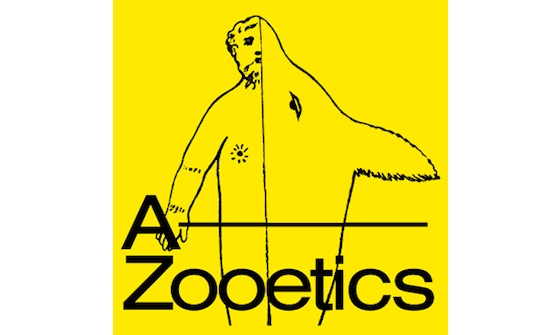11 Dec 2018
Events
Zooetics: Anthroposcene / Interspecies
Friday, 5 December, Kaunas University of Technology
Zooetics is a series of public lectures at Kaunas University of Technology, Winter 2014. Leading thinkers across the fields of humanities, design and engineering will unpack the notions of Interspecies, Anthropocene and Nature, and propose new conjunctions across these ideas. The Lectures are free but it is essential to book since places are limited.
Christian Schwägerl – Sense, Sensors and Sensitivity
Christian Schwägerl will provide an overview of how the Anthropocene idea came into existence, what changes in the geospehere, biosphere and the ‘knowosphere’ it stands for and how it changes the way ‘we’ view the Earth, Nature and ourselves. How can humanity, through means of philosophy, technology and civil engagement, develop an emerging ‘Anthropocene’ consciousness of its collective actions and how they shape the world? The Anthropocene idea can and should lead to the exact opposite of ‘anthropocentrism’ and help connect to the world as a whole and shape it in a more meaningful and more creative way.
Natalie Jeremijenko – BiodiverCITY: Organism-centric Urbanism
Natalie Jeremijenko will address the following iFAQs (infrequently asked questions):
What is an Environmental Health Clinic (xCLINIC) and why would they pay me to ride my bike? Why is CHILDxLABOR in my future? How do I get a tree as my landlord? Will I get hurt wrestling rhinoceros beetles and why do I have to wear the helmet? What is smarter than a smart city? Why do I bring my junk mail to the BIOCHAR BBQ and what if I don’t know how to salsa? How do I become a certified FLORISTA and why do pollinators care if I hula-hoop? Which is my snail and how does it email me? What do I barter for my blood test results? Can I take the Salamander SuperHighway to the Bronx OOZ, and what does this new zoo look like? How do I co-produce a delicious, bio-diverse and healthy urban future? What would Kaunas look like with an xCLINIC, FARMACY and OOZ? How do I enlist in (the xCLINIC corp) Doctors without Disciplinary Borders?
Christian Schwägerl is a writer and journalist with an MSc in Biology. He published his book on the Anthropocene in 2010 in German: Menschenzeit, which has been published in English this year as The Anthropocene: The human era and how it shapes our planet (Synergetic Press, 2014). He contributed to The Anthropocene Project at the House of World Cultures in Berlin and to an exhibition on the Anthropocene at the German Technology Museum in Munich opening in December 2014. His other books include 11 Looming Wars: Future conflicts over technologies, resources, territories and food, co-written with Andreas Rinke (2012) and The Analog Revolution (2014).
Since 1988 he has written for national media in Germany about political, scientific, environmental, economic and cultural affairs. He received the Weichmann Award in 1989 for feature articles on environmental problems in New Zealand published in Frankfurter Rundschau und GEO Saison. He was awarded the Georg-von-Holtzbrink Award for science journalism in 2007 and the Econsense Award for environmental reporting in 2008. He covered the first UN climate conference COP1 in Berlin for Süddeutsche Zeitung. He previously wrote for Berliner Zeitung, Frankfurter Allgemeine Zeitung, DER SPIEGEL magazine and SPIEGEL Online.
He writes for GEO magazine, Cicero magazine, ZEIT Wissen magazine, Yale E360 and Frankfurter Allgemeine Zeitung and heads the Masterclass Future Science Journalism for the Robert Bosch Foundation and Reporter-Forum.
Named amongst the 2013 Most Innovative People, the most influential women in technology 2011, one of the inaugural top young innovators by MIT Technology Review and 40 most influential designers, Natalie Jeremijenko directs the Environmental Health Clinic, and is an Associate Professor in the Visual Art Department, New York University and affiliated with the Computer Science Department and Environmental Studies program. Previously she was on the Visual Arts faculty at University of California San Diego, Faculty of Engineering at Yale University, a Visiting Professor at Royal College of Art in London, a Distinguished Visiting Professor in the Public Understanding of Science at Michigan State University, and a Visiting Global Distinguished Professor at they NYU College of Arts and Sciences. Her degrees are in biochemistry, engineering, neuroscience and History and Philosophy of Science.

